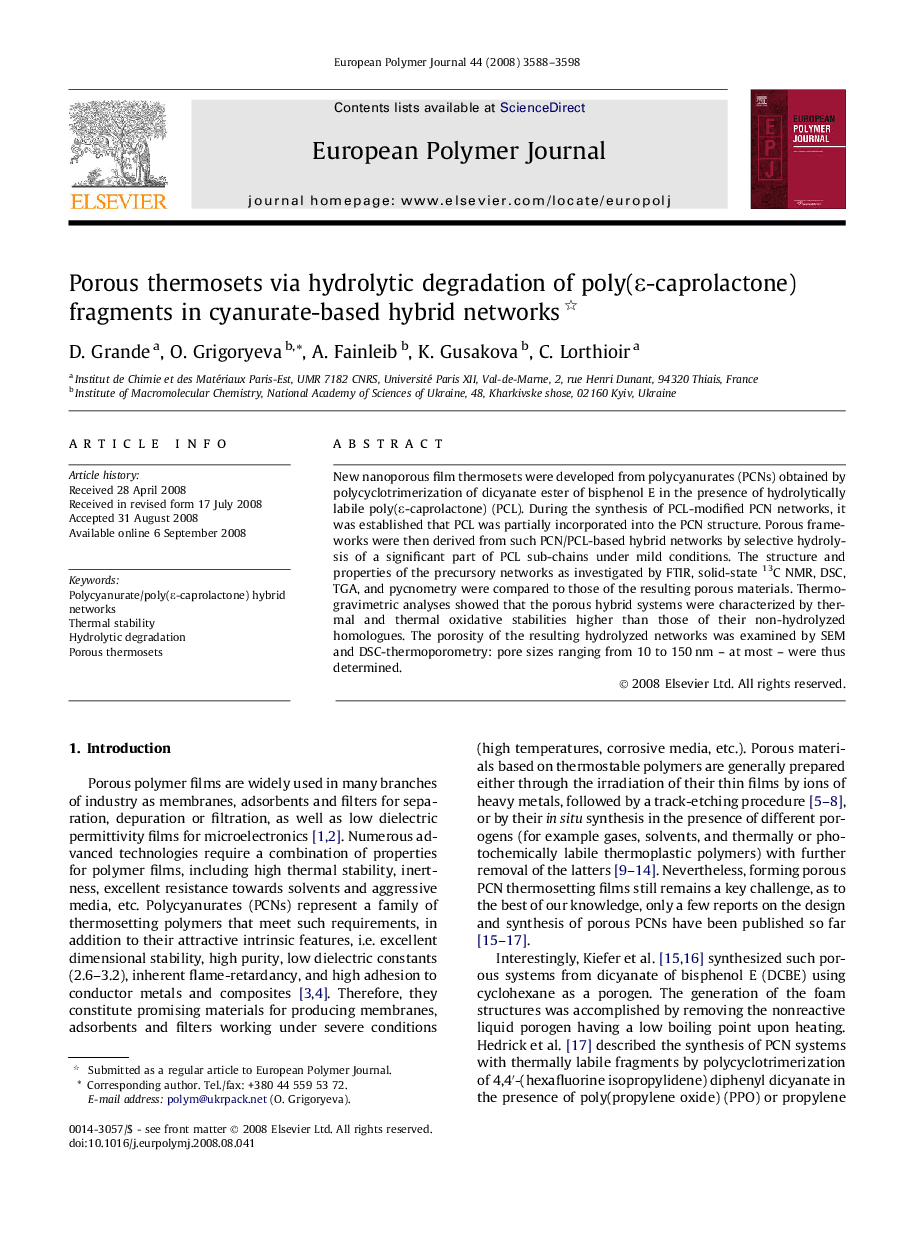| Article ID | Journal | Published Year | Pages | File Type |
|---|---|---|---|---|
| 1400869 | European Polymer Journal | 2008 | 11 Pages |
Abstract
New nanoporous film thermosets were developed from polycyanurates (PCNs) obtained by polycyclotrimerization of dicyanate ester of bisphenol E in the presence of hydrolytically labile poly(ε-caprolactone) (PCL). During the synthesis of PCL-modified PCN networks, it was established that PCL was partially incorporated into the PCN structure. Porous frameworks were then derived from such PCN/PCL-based hybrid networks by selective hydrolysis of a significant part of PCL sub-chains under mild conditions. The structure and properties of the precursory networks as investigated by FTIR, solid-state 13C NMR, DSC, TGA, and pycnometry were compared to those of the resulting porous materials. Thermogravimetric analyses showed that the porous hybrid systems were characterized by thermal and thermal oxidative stabilities higher than those of their non-hydrolyzed homologues. The porosity of the resulting hydrolyzed networks was examined by SEM and DSC-thermoporometry: pore sizes ranging from 10 to 150 nm - at most - were thus determined.
Related Topics
Physical Sciences and Engineering
Chemistry
Organic Chemistry
Authors
D. Grande, O. Grigoryeva, A. Fainleib, K. Gusakova, C. Lorthioir,
